10 surprising airline rules that you may never know once existed
Some people may recall a time when flyers could light up a cigarette onboard, say bon voyage to a loved one from right at the gate, or even enjoy a luxurious lounge atmosphere complete with a piano bar from economy class. While traces of these times may be noticeable on in-flight signage or the flight attendants safety warnings, some of these rules may surprise you. Take a look at these 10 surprising airline rules you may never have known about:
Smoking
Unless you like to light up, youre probably glad you can no longer smoke onboard flights today. Once upon a time, airline cabins were divided both by status (first class and economy class) and recreational habits. Airlines didnt even charge smokers a premium for the privilege. Both smoking and non-smoking tickets were sold for the same price. Airlines started phasing out smoking sections on U.S. domestic flights in 1998. By the mid-1990s, all U.S. flights were smoke free.
 Fly supersonic
From 1976-2003, flyers on a tight schedule could fly from London to New York in less than 3 hours supersonically via Concorde. Today, the same trip takes nearly 8 hours. In July 1985, Phil Collins gained global attention when he used Concorde to participate in both the U.K. and U.S. Live Aide concerts. Phil started the day playing at Webley Stadium in London, before catching the British Airways Concorde for New York. He then shuttled down to Philadelphia and joined Eric Clapton on stage. The golden age of commercial supersonic travel ended when Air France and British Airways suspended Concorde flights in 2003. Theres talk that supersonic flights may make a comeback, but so far, they have been absent from 21st century life.
Fly supersonic
From 1976-2003, flyers on a tight schedule could fly from London to New York in less than 3 hours supersonically via Concorde. Today, the same trip takes nearly 8 hours. In July 1985, Phil Collins gained global attention when he used Concorde to participate in both the U.K. and U.S. Live Aide concerts. Phil started the day playing at Webley Stadium in London, before catching the British Airways Concorde for New York. He then shuttled down to Philadelphia and joined Eric Clapton on stage. The golden age of commercial supersonic travel ended when Air France and British Airways suspended Concorde flights in 2003. Theres talk that supersonic flights may make a comeback, but so far, they have been absent from 21st century life.
 Pay for your airline seat during the flight
Imagine this: its 1985. Youre in Buffalo, NY and need to fly to New York tonight. Theres no Internet, no cell phones, no e-tickets. How do you get on the flight? You just drive to the airport, go through security, get on the plane and pay on board once airborne. It may seem unbelievable, but thats the way it was. Peoples Express is probably the most well remembered first generation low cost carrier. Their revenue model was simple: pay the price and pay on board. Rapid expansion and mounting debt eventually led to their being taken over by Continental, but well give it to them that they were an innovator.
Pay for your airline seat during the flight
Imagine this: its 1985. Youre in Buffalo, NY and need to fly to New York tonight. Theres no Internet, no cell phones, no e-tickets. How do you get on the flight? You just drive to the airport, go through security, get on the plane and pay on board once airborne. It may seem unbelievable, but thats the way it was. Peoples Express is probably the most well remembered first generation low cost carrier. Their revenue model was simple: pay the price and pay on board. Rapid expansion and mounting debt eventually led to their being taken over by Continental, but well give it to them that they were an innovator.
 Write your own ticket
While occasional travelers could pay for their seats mid-flight, frequent travelers were empowered to write their own tickets. Some carriers sold pre-written ticket books, allowing the flyer to write in the dates as needed. When most airline ticket sites launched in 1995, self-written tickets became a thing of the past.
Write your own ticket
While occasional travelers could pay for their seats mid-flight, frequent travelers were empowered to write their own tickets. Some carriers sold pre-written ticket books, allowing the flyer to write in the dates as needed. When most airline ticket sites launched in 1995, self-written tickets became a thing of the past.
 Visit the cockpit
In the 20th century,a trip to the cockpit was nearly automatic for kids of almost any age. Commercial aviation forever changed post 9-11, and the trips to the cockpit largely became a thing of the past.
Visit the cockpit
In the 20th century,a trip to the cockpit was nearly automatic for kids of almost any age. Commercial aviation forever changed post 9-11, and the trips to the cockpit largely became a thing of the past.
 Fly anonymously
In the 20th century, IDs were only required when flying internationally. There were no ID checks for flights within the U.S. Tickets were technically non-transferrable, but unused nonrefundable tickets were regularly bought and resold. If you bought a nonrefundable ticket then decided not to fly, youd place a classified ad in your local paper trying to unload the ticket. There were even brokers in larger cities that specialized in matching holders of non-refundable tickets with buyers for a fee. The name on the ticket couldnt be changed, but since airport security didnt check IDs, it didnt matter. D.B. Cooper used this loophole to his advantage after skyjacking a Northwest flight and parachuting out the back door over $200,000 in cash.
Fly anonymously
In the 20th century, IDs were only required when flying internationally. There were no ID checks for flights within the U.S. Tickets were technically non-transferrable, but unused nonrefundable tickets were regularly bought and resold. If you bought a nonrefundable ticket then decided not to fly, youd place a classified ad in your local paper trying to unload the ticket. There were even brokers in larger cities that specialized in matching holders of non-refundable tickets with buyers for a fee. The name on the ticket couldnt be changed, but since airport security didnt check IDs, it didnt matter. D.B. Cooper used this loophole to his advantage after skyjacking a Northwest flight and parachuting out the back door over $200,000 in cash.
 Fly without excessive bag fees
Airlines have always charged for excess baggage, but only in the past two decades have flyers been trapped into paying outrageous bag fees. In the 20th century, savvy flyers would use a skycap to check as many bags as needed for a $20 bill. Skycap magic also worked with boxes. A Passport Premiere subscriber recently reminded us that he checked six boxes of Dole pineapples between Honolulu and New York (over 100 lbs!) for $20 using a skycap!
Fly without excessive bag fees
Airlines have always charged for excess baggage, but only in the past two decades have flyers been trapped into paying outrageous bag fees. In the 20th century, savvy flyers would use a skycap to check as many bags as needed for a $20 bill. Skycap magic also worked with boxes. A Passport Premiere subscriber recently reminded us that he checked six boxes of Dole pineapples between Honolulu and New York (over 100 lbs!) for $20 using a skycap!
 Relax onboard in the economy class lounge (yes, economy!)
Back in the day, airlines cared about the comfort of its economy class flyers. Airlines competed on service rather than price. American Airlines widebody aircraft featured a piano bar in coach, and other carriers followed. By the mid-1980s, economy class lounges were phased out as competitive threats from deregulation hit full throttle.
Relax onboard in the economy class lounge (yes, economy!)
Back in the day, airlines cared about the comfort of its economy class flyers. Airlines competed on service rather than price. American Airlines widebody aircraft featured a piano bar in coach, and other carriers followed. By the mid-1980s, economy class lounges were phased out as competitive threats from deregulation hit full throttle.
 Your economy ticket entitled you to a desirable economy class seat for free!
Back in the day, the passenger paying the least still had access the most desirable seats aisle seats, bulk head seats, or the emergency exit row even without preferred or elite status. Your ticket even included amenities like meals, drinks, pillows and blankets. Today on flights, it seems that everything is for sale. These additional fees can sometimes cost more than the fare itself on some deeply discounted routes. Theres even been talk about putting a meter on the lavatory and charging for toilet paper.
Your economy ticket entitled you to a desirable economy class seat for free!
Back in the day, the passenger paying the least still had access the most desirable seats aisle seats, bulk head seats, or the emergency exit row even without preferred or elite status. Your ticket even included amenities like meals, drinks, pillows and blankets. Today on flights, it seems that everything is for sale. These additional fees can sometimes cost more than the fare itself on some deeply discounted routes. Theres even been talk about putting a meter on the lavatory and charging for toilet paper.
 Upgrade with a wink and a smile
When mileage programs were still in their infancy, dropping a few compliments to the gate agent could deliver you from the pits of economy to first class. Today? Well, human check-in agents have mostly been replaced with kiosks and on-line check in. You can give the kiosk all the compliments you want, but it wont result in an upgrade. It doesnt even get you out of the dreaded middle seat unless youre ready to pay!
Upgrade with a wink and a smile
When mileage programs were still in their infancy, dropping a few compliments to the gate agent could deliver you from the pits of economy to first class. Today? Well, human check-in agents have mostly been replaced with kiosks and on-line check in. You can give the kiosk all the compliments you want, but it wont result in an upgrade. It doesnt even get you out of the dreaded middle seat unless youre ready to pay!
 Lars Condor is the Managing Director of Passport Premiere.
If you would like to be a guest blogger on A Luxury Travel Blog in order to raise your profile, please contact us.
Lars Condor is the Managing Director of Passport Premiere.
If you would like to be a guest blogger on A Luxury Travel Blog in order to raise your profile, please contact us.
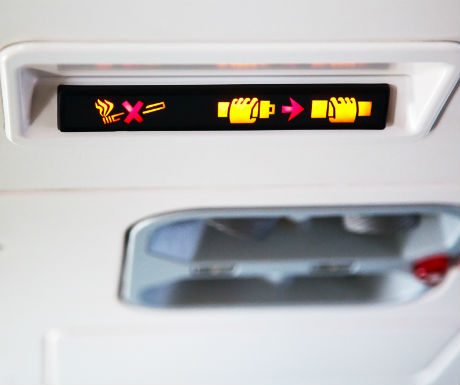 Fly supersonic
From 1976-2003, flyers on a tight schedule could fly from London to New York in less than 3 hours supersonically via Concorde. Today, the same trip takes nearly 8 hours. In July 1985, Phil Collins gained global attention when he used Concorde to participate in both the U.K. and U.S. Live Aide concerts. Phil started the day playing at Webley Stadium in London, before catching the British Airways Concorde for New York. He then shuttled down to Philadelphia and joined Eric Clapton on stage. The golden age of commercial supersonic travel ended when Air France and British Airways suspended Concorde flights in 2003. Theres talk that supersonic flights may make a comeback, but so far, they have been absent from 21st century life.
Fly supersonic
From 1976-2003, flyers on a tight schedule could fly from London to New York in less than 3 hours supersonically via Concorde. Today, the same trip takes nearly 8 hours. In July 1985, Phil Collins gained global attention when he used Concorde to participate in both the U.K. and U.S. Live Aide concerts. Phil started the day playing at Webley Stadium in London, before catching the British Airways Concorde for New York. He then shuttled down to Philadelphia and joined Eric Clapton on stage. The golden age of commercial supersonic travel ended when Air France and British Airways suspended Concorde flights in 2003. Theres talk that supersonic flights may make a comeback, but so far, they have been absent from 21st century life.
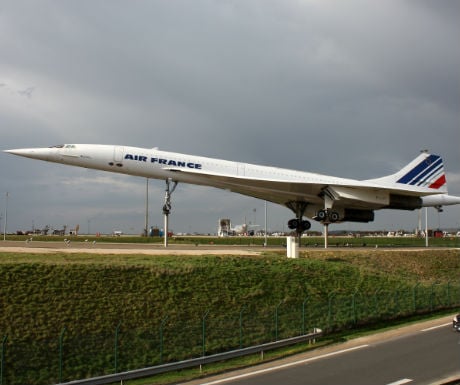 Pay for your airline seat during the flight
Imagine this: its 1985. Youre in Buffalo, NY and need to fly to New York tonight. Theres no Internet, no cell phones, no e-tickets. How do you get on the flight? You just drive to the airport, go through security, get on the plane and pay on board once airborne. It may seem unbelievable, but thats the way it was. Peoples Express is probably the most well remembered first generation low cost carrier. Their revenue model was simple: pay the price and pay on board. Rapid expansion and mounting debt eventually led to their being taken over by Continental, but well give it to them that they were an innovator.
Pay for your airline seat during the flight
Imagine this: its 1985. Youre in Buffalo, NY and need to fly to New York tonight. Theres no Internet, no cell phones, no e-tickets. How do you get on the flight? You just drive to the airport, go through security, get on the plane and pay on board once airborne. It may seem unbelievable, but thats the way it was. Peoples Express is probably the most well remembered first generation low cost carrier. Their revenue model was simple: pay the price and pay on board. Rapid expansion and mounting debt eventually led to their being taken over by Continental, but well give it to them that they were an innovator.
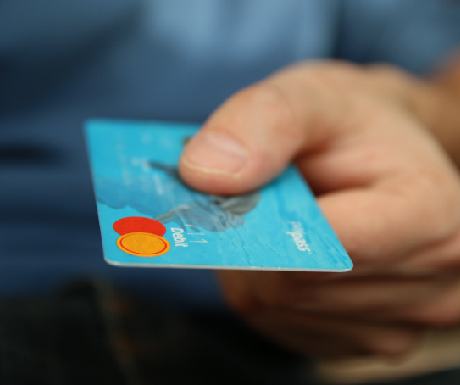 Write your own ticket
While occasional travelers could pay for their seats mid-flight, frequent travelers were empowered to write their own tickets. Some carriers sold pre-written ticket books, allowing the flyer to write in the dates as needed. When most airline ticket sites launched in 1995, self-written tickets became a thing of the past.
Write your own ticket
While occasional travelers could pay for their seats mid-flight, frequent travelers were empowered to write their own tickets. Some carriers sold pre-written ticket books, allowing the flyer to write in the dates as needed. When most airline ticket sites launched in 1995, self-written tickets became a thing of the past.
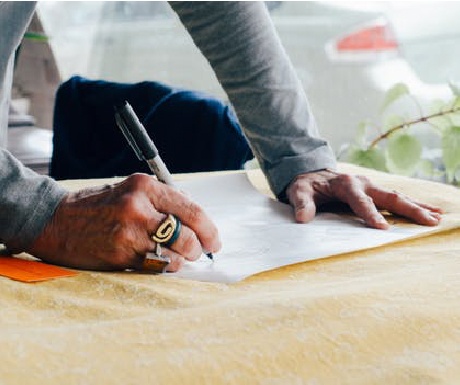 Visit the cockpit
In the 20th century,a trip to the cockpit was nearly automatic for kids of almost any age. Commercial aviation forever changed post 9-11, and the trips to the cockpit largely became a thing of the past.
Visit the cockpit
In the 20th century,a trip to the cockpit was nearly automatic for kids of almost any age. Commercial aviation forever changed post 9-11, and the trips to the cockpit largely became a thing of the past.
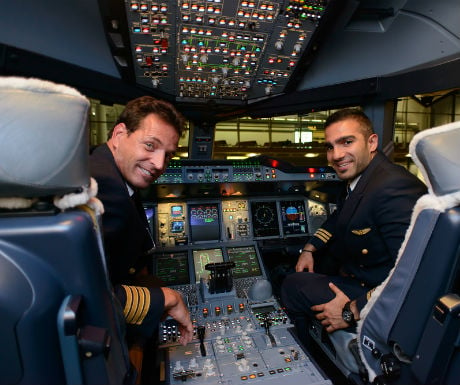 Fly anonymously
In the 20th century, IDs were only required when flying internationally. There were no ID checks for flights within the U.S. Tickets were technically non-transferrable, but unused nonrefundable tickets were regularly bought and resold. If you bought a nonrefundable ticket then decided not to fly, youd place a classified ad in your local paper trying to unload the ticket. There were even brokers in larger cities that specialized in matching holders of non-refundable tickets with buyers for a fee. The name on the ticket couldnt be changed, but since airport security didnt check IDs, it didnt matter. D.B. Cooper used this loophole to his advantage after skyjacking a Northwest flight and parachuting out the back door over $200,000 in cash.
Fly anonymously
In the 20th century, IDs were only required when flying internationally. There were no ID checks for flights within the U.S. Tickets were technically non-transferrable, but unused nonrefundable tickets were regularly bought and resold. If you bought a nonrefundable ticket then decided not to fly, youd place a classified ad in your local paper trying to unload the ticket. There were even brokers in larger cities that specialized in matching holders of non-refundable tickets with buyers for a fee. The name on the ticket couldnt be changed, but since airport security didnt check IDs, it didnt matter. D.B. Cooper used this loophole to his advantage after skyjacking a Northwest flight and parachuting out the back door over $200,000 in cash.
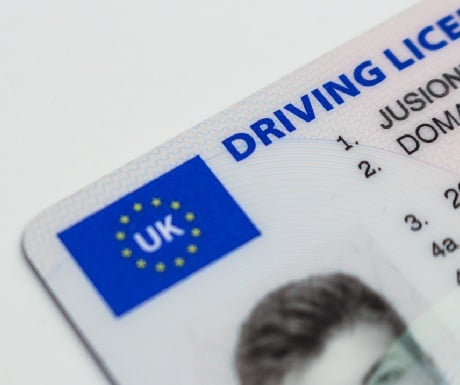 Fly without excessive bag fees
Airlines have always charged for excess baggage, but only in the past two decades have flyers been trapped into paying outrageous bag fees. In the 20th century, savvy flyers would use a skycap to check as many bags as needed for a $20 bill. Skycap magic also worked with boxes. A Passport Premiere subscriber recently reminded us that he checked six boxes of Dole pineapples between Honolulu and New York (over 100 lbs!) for $20 using a skycap!
Fly without excessive bag fees
Airlines have always charged for excess baggage, but only in the past two decades have flyers been trapped into paying outrageous bag fees. In the 20th century, savvy flyers would use a skycap to check as many bags as needed for a $20 bill. Skycap magic also worked with boxes. A Passport Premiere subscriber recently reminded us that he checked six boxes of Dole pineapples between Honolulu and New York (over 100 lbs!) for $20 using a skycap!
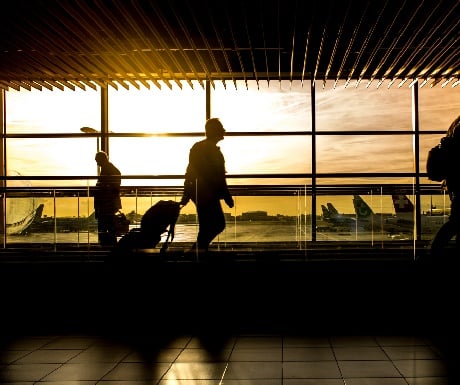 Relax onboard in the economy class lounge (yes, economy!)
Back in the day, airlines cared about the comfort of its economy class flyers. Airlines competed on service rather than price. American Airlines widebody aircraft featured a piano bar in coach, and other carriers followed. By the mid-1980s, economy class lounges were phased out as competitive threats from deregulation hit full throttle.
Relax onboard in the economy class lounge (yes, economy!)
Back in the day, airlines cared about the comfort of its economy class flyers. Airlines competed on service rather than price. American Airlines widebody aircraft featured a piano bar in coach, and other carriers followed. By the mid-1980s, economy class lounges were phased out as competitive threats from deregulation hit full throttle.
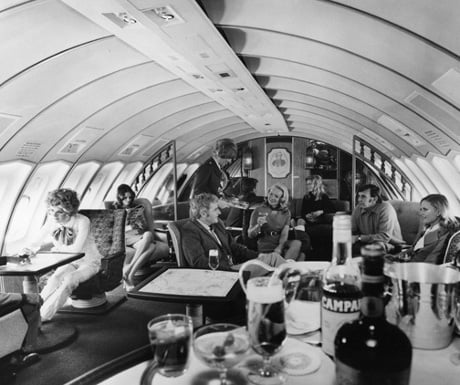 Your economy ticket entitled you to a desirable economy class seat for free!
Back in the day, the passenger paying the least still had access the most desirable seats aisle seats, bulk head seats, or the emergency exit row even without preferred or elite status. Your ticket even included amenities like meals, drinks, pillows and blankets. Today on flights, it seems that everything is for sale. These additional fees can sometimes cost more than the fare itself on some deeply discounted routes. Theres even been talk about putting a meter on the lavatory and charging for toilet paper.
Your economy ticket entitled you to a desirable economy class seat for free!
Back in the day, the passenger paying the least still had access the most desirable seats aisle seats, bulk head seats, or the emergency exit row even without preferred or elite status. Your ticket even included amenities like meals, drinks, pillows and blankets. Today on flights, it seems that everything is for sale. These additional fees can sometimes cost more than the fare itself on some deeply discounted routes. Theres even been talk about putting a meter on the lavatory and charging for toilet paper.
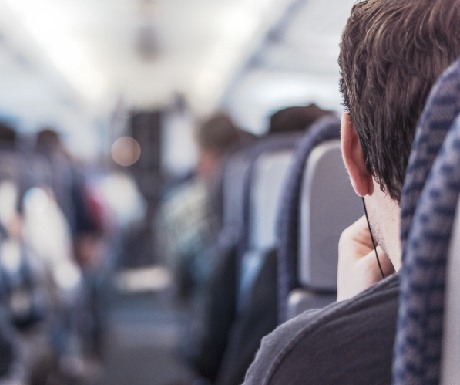 Upgrade with a wink and a smile
When mileage programs were still in their infancy, dropping a few compliments to the gate agent could deliver you from the pits of economy to first class. Today? Well, human check-in agents have mostly been replaced with kiosks and on-line check in. You can give the kiosk all the compliments you want, but it wont result in an upgrade. It doesnt even get you out of the dreaded middle seat unless youre ready to pay!
Upgrade with a wink and a smile
When mileage programs were still in their infancy, dropping a few compliments to the gate agent could deliver you from the pits of economy to first class. Today? Well, human check-in agents have mostly been replaced with kiosks and on-line check in. You can give the kiosk all the compliments you want, but it wont result in an upgrade. It doesnt even get you out of the dreaded middle seat unless youre ready to pay!
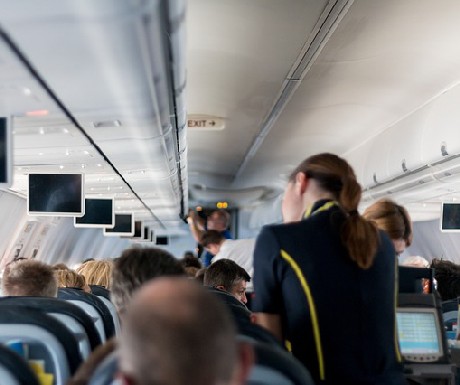 Lars Condor is the Managing Director of Passport Premiere.
If you would like to be a guest blogger on A Luxury Travel Blog in order to raise your profile, please contact us.
Lars Condor is the Managing Director of Passport Premiere.
If you would like to be a guest blogger on A Luxury Travel Blog in order to raise your profile, please contact us.Did you enjoy this article?
Receive similar content direct to your inbox.


What an amazing slice of nostalgia! I’ve been around a long time so I remember some of these things.
It always strikes me that flying is getting more and more like taking a bus. The glamour, unless you are turning left into Business or First Class, seems to have evaporated long ago. That makes me think that maybe we’ll get back to the days when you can turn up and pay on the plane once more. Surely that would be a good way of selling excess capacity seats?